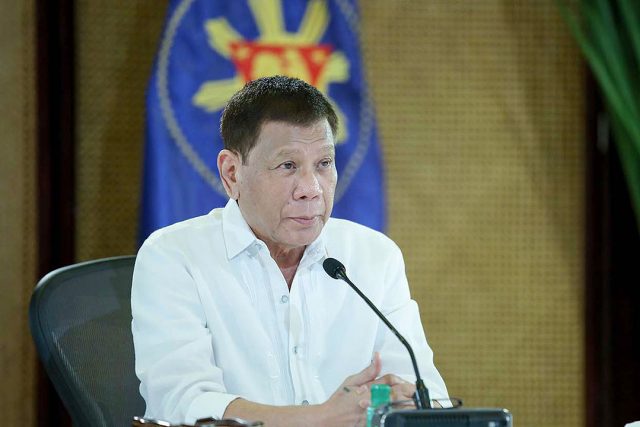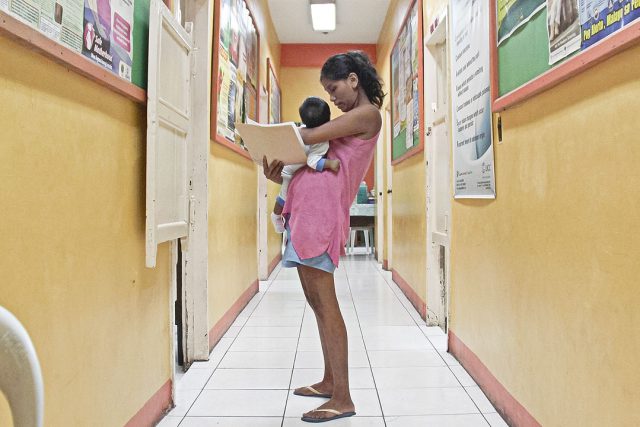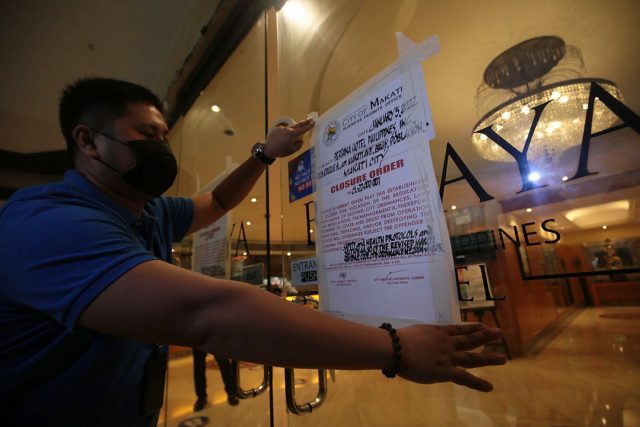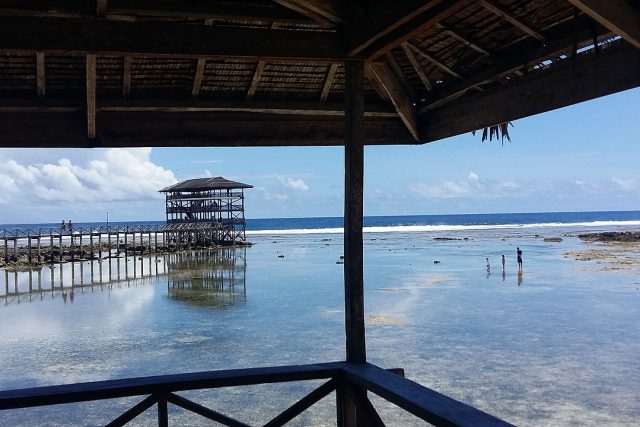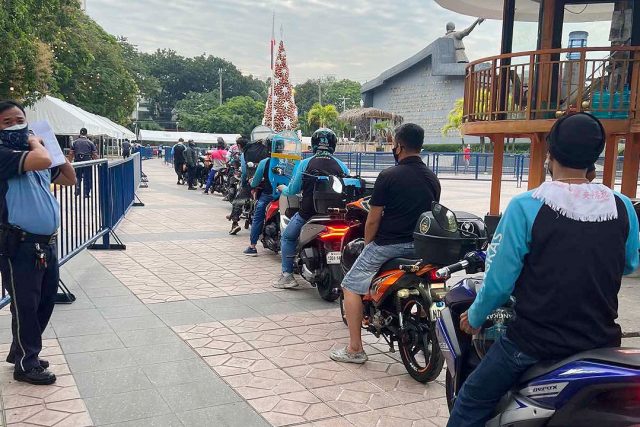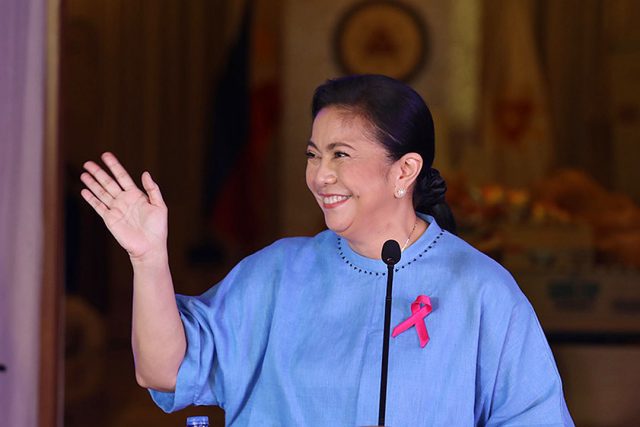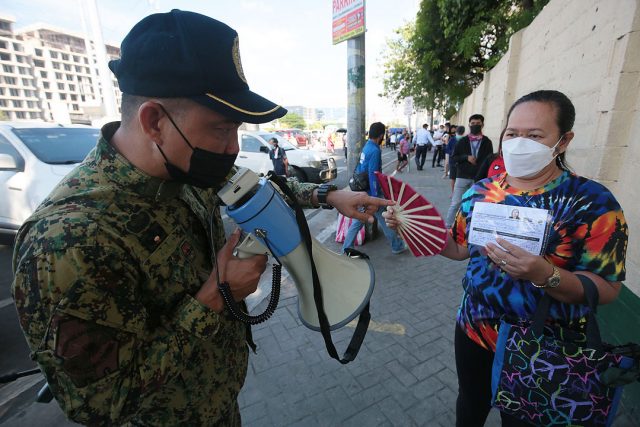BusinessWorld bannered a very interesting news story that a Robredo win is “more market-friendly.” Based on the study by Nomura Global Research entitled “Philippines: No Holiday Cheer,” an incoming administration of Vice-President Leni Robredo is deemed more positive to the market than that of former Senator Ferdinand Marcos, Jr.
The team of Euben Paracuelles, chief ASEAN economist, and analysts Rangga Cipta, Craig Chan, and Wee Choon Teo based their assessment of the positive market implications of a Robredo win mainly on her experience “at the national level and articulating a strategy for the country to recover from the pandemic.”
The Nomura economists equated her experience and strategic approach with the ability to preside over a post-pandemic recovery. Her rightful focus on both healthcare and education which should be topmost in the agenda of the new president beginning July 1, 2022, counted for something significant. The pandemic has overwhelmed our health facilities in the last two years and unmasked decades of criminal neglect. With the lockdown, education was the immediate and most serious casualty. Young schoolchildren have to learn via Zoom, handicapped by inadequate supply of electronic gadgets and hopelessly weak internet signals. Even licensure examinations have to be compressed and shortened to get over them lest the virus totally scrap them for now.
As a team, Robredo and her running mate, Senator Francis Pangilinan, scored five out of five for national experience and business friendliness. They obtained four out of five in continuity/governance, infrastructure progress, and fiscal discipline. Robredo was especially cited for championing human rights causes and her declaration that transparency and accountability would be central to her presidency.
Transparency and accountability are considered crucial in preventing corruption that has characterized the Duterte government’s management of the pandemic. Based on the initial finding of the Philippine Senate, the Government in the middle of the pandemic squeezed dry its budget and borrowed inordinate amount of money for pandemic mitigation only to end up enriching some favored few.
Transparency and accountability are the building blocks of predictable governance which is considered important by the market. Without these elements, the government might not be inclined to address market failures including missing or weak markets, imperfect information and negative externalities. Government failure could lead to loss of market confidence, reversal or trickles of both domestic and foreign investments, and a credit crunch.
Robredo has committed that under her leadership, the Government will uplift the condition of the marginalized sectors of Philippine society. The broadsheets also reported her priority on food security through an intentional policy of doubling the agriculture budget.
Contrary to the fake videos going around social media, Robredo has provided civil society a glimpse of what to expect in terms of her political platform, something that Nomura must have had the benefit of examining when their report was prepared. First, the Vice-President, in a press conference in November, rolled out her comprehensive plan to mitigate the health pandemic and usher in the nation’s recovery. Second, in another press conference in early December, she zeroed in on the principal collateral damage of the pandemic which is the loss of millions of jobs.
Her health strategy was not taken from thin air. Robredo explained that “narating natin ang plano sa pagkokonsulta sa mga eksperto, mga sector, at higit sa lahat, sa harapang pagsaksi sa dinadaanan ng Pilipino (we came to the plan by consulting with experts, with the sectors, and, most of all, through our first-hand witnessing of what the Filipino is going through).” Nomura must have found this approach not only transparent and consultative but also evidence- and science-based.
Her immediate plan is to overhaul the current pandemic response which proved unequal to the health challenge. She was spot on when she declared the health sector needs a new leader supported by a team of experts, particularly organic staff of the health department. She believes the inter-agency task force on the pandemic should be streamlined for more nimble response.
Testing is to be stepped up, free and regular for healthcare workers and teachers alike. Benefits will be given to healthcare workers who will also be regularized and exempted from the Personnel Salary Cap. A centralized, integrated, and uniform contact tracing system will be institutionalized.
For the vaccines, P50 billion will be earmarked for distribution through a national vaccination distribution network of strengthened local health units for more systematic and monitored rollout. In areas with a high number of cases of COVID-19, free and safe mobile testing systems will be made available. Assistance will also be extended to families and small businesses in areas locked down on a granular basis to allow them to keep their workers employed.
In the medium term, she intends to double the health budget from the current P113 billion as recommended by the Philippine Health Facility Development Plan 2020-2040. More hospital beds, more healthcare workers, more medical equipment, and more systematic shifts of doctors and nurses are envisioned in her plan. With an inadequate number of hospital beds in the countryside, the Vice-President proposes to establish field hospitals, 2,400 rural health units and health centers in four years.
On the other hand, the Vice-President’s job recovery plan or “Hanapbuhay Para sa Lahat” (Work for All) can only be described as comprehensive. It was correct for her to focus on job recovery because as many as seven million jobs were lost at some point in 2020 when the pandemic-driven unemployment rate soared to 17.7 %.
Robredo’s plan is anchored on five pivotal themes: regaining trust in government, reviving Filipino industries, ending discrimination at work, supporting small businesses, and cushioning the effects of unemployment.
She was forceful when she declared that “Sa araw-araw mong pagkayod, dapat kakampi mo ang gobyerno (in your daily grind, government should be your ally).” For her, regaining the public’s trust in the Government should require the elimination of corruption and red tape. And this must be music to the ears of the market, “the playing field for businesses should be leveled.”
Robredo proposes plans to develop the maritime industry by including relevant courses in high school, modernizing docks and wharfs around the costal Philippines, and streamlining ship registration. The country is also up to be a “center of climate industry” by creating an e-transport industry, modernizing agricultural processes, investing in “climate smart” agricultural infrastructure and developing a clean energy policy framework.
For global competitiveness, the Vice-President is also proposing greater research and investment in modern technology and innovation. Manufacturing will be revived by an institutionalized industry roadmap, very suggestive of China and Vietnam’s successful efforts. To support job recovery, appropriate confidence-building measures will be undertaken including the strengthening of antitrust bodies, implementation of the Ease of Doing Business Act and accelerating the digital shift particularly in government operation.
These proposals could cost around P200 billion, or some 4% of the P5.024-trillion budget for 2022. The Vice-President is prepared to identify the possible sources including the budget for public works and highways, transportation, office of the President, and the police.
Finally, how she scored lower than five in continuity and governance as well as fiscal discipline is perplexing. With her budget cut to the bones, Robredo even managed to extend help to many victims of natural calamities by rallying private support. In three of her five years as vice-president, the Commission on Audit has given Robredo the highest audit ratings with an “unqualified opinion.” If this quality of governance and fiscal discipline has been shown to be possible, it could very well be replicated if Robredo is elected president of the Republic.
Infrastructure could be tricky as a metric of choice. Neither of the leading presidential candidates could claim credit, or lack of it, for the infrastructure program of the Duterte government. In the last five years, Robredo was not allowed to work with the cabinet while Marcos, Jr. remained a private individual who filed and lost an electoral protest against her.
Diwa C. Guinigundo is the former deputy governor for the Monetary and Economics Sector, the Bangko Sentral ng Pilipinas (BSP). He served the BSP for 41 years. In 2001-2003, he was alternate executive director at the International Monetary Fund in Washington, DC. He is the senior pastor of the Fullness of Christ International Ministries in Mandaluyong.

